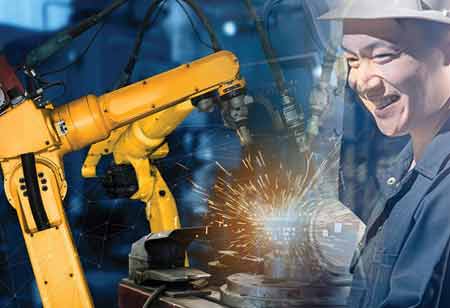There are four major energy consumers in the chemical manufacturing industry.
FREMONT, CA: Under the chemical manufacturing industry, there are four major energy consumers: conventional boilers, CHP/ cogeneration, process heating, and drive power. Below, we classify how these four energy consumers are used.
1. Conventional Boilers
High-pressure boiler systems are important to any good chemical processing plant. Boilers are the ignored heroes of chemical processing procedures in more ways than one. Boilers have a powerful effect on the productivity and efficiency of a processing plant.
Chemical processing normally operates in a cyclical pattern. A processing plant's reactor must be heated up and cooled down at certain times. The steam produced by the plant’s boiler system is essential to making this happen.
There are also a few difficulties that come with a boiler that can spoil the efficiency of a manufacturing process. For illustration, fluctuating load demands can need different amounts of steam over the day, which can be hard to manage without wasting fuel.
2. Process Heating
Process heating is more important as transferring heat from one fluid to another is critical to chemical manufacturing. Thermal processing is integral, whether to guide an exothermic reaction with cooling or heat components to initiate a reaction to make a final product.
ogeneration provides optimal conditions for efficient energy application as plants can incorporate gas and steam turbines.
Although there are many ways to integrate process heating into a manufacturing plant, the main issue for consideration is the corrosiveness of the processed chemicals. When a plant handles more corrosive materials, they require higher alloys.
3. CHP / Cogeneration
Combined heat and power (CHP) can be a more efficient technology for the chemical manufacturing industry as it contributes to economic and emission savings. Specific CHP plants can generate electricity and steam, increasing net fuel utilization to around 90%.
Demand for steam in the industry is very high because of the nature of the procedure. Cogeneration provides optimal conditions for efficient energy application as plants can incorporate gas and steam turbines. This raises how much electricity is produced compared to a cogeneration plant with a traditional boiler and counter-pressure steam turbine.
4. Drive power
Drive power runs systems like motors, hydraulics, etc. It recasts electrical or hydraulic power into mechanical motion (commonly rotary) to drive a mechanical actuation system. Within the chemical industry, drive power is always necessary for the machinery employed to process the chemicals.
A motor drive generally controls a motor's speed, torque, direction, and horsepower. Drives tend to fall into two categories: AC and DC. An AC drive maintains the AC induction motors, whereas a DC drive generally controls a shunt-wound DC motor with distinct armature and field circuits. Both of these drives are necessary to process chemicals.

